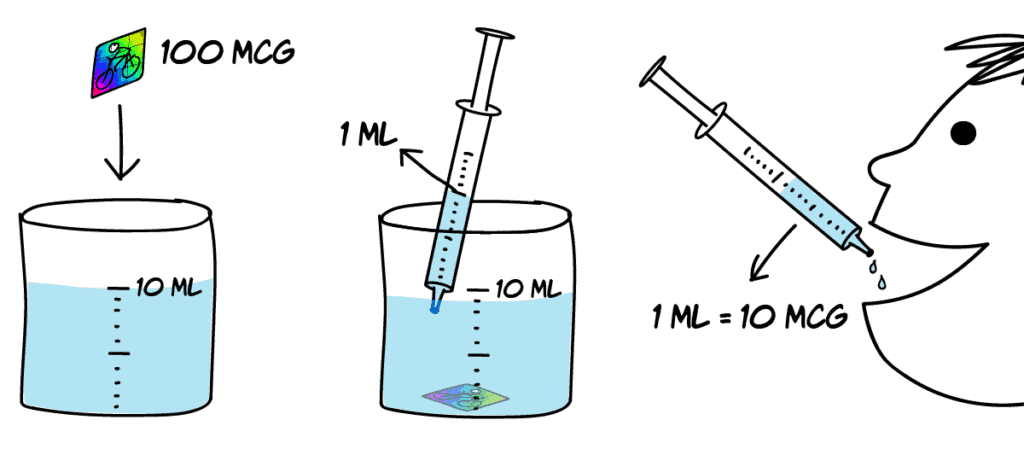
Many busy professionals swear by a chemical productivity hack: microdosing on psychedelics such as LSD or magic mushrooms. Microdosing psychedelics involves ingesting a very small amount of a drug in order to experience some positive side effects while staying below the dosage threshold that would cause you to trip (i.e. hallucinate). Some of these positives side effects include improved mood and productivity, as well as reduced symptoms of depression and anxiety. However, the first placebo-controlled, double-blind study on microdosing came to far less impressive conclusions. Apparently, microdosing has very limited benefits and quite a few downsides.
The study, which involved 20 healthy young adults, does confirm that microdosing actually has a physiological effect, and its associated alterations in consciousness are not due to the placebo effect. The researchers led by Harriet de Wit, a Professor at the University of Chicago, gave the volunteers doses of either 6.5, 13. or 26 micrograms of LSD or a placebo in random order. The doses were spaced over four sessions, each separated by a week.
The 13 and 26 microgram doses produced measurable physiological effects, such as increased blood pressure. These doses also increased self-reported ratings of stamina and anxiety, as well as an increase in feelings of bliss and ‘unity with the world’. Previous studies that scanned the brains of people while they were high on LSD found that the drug enhances connectivity between different regions of the brain.
However, the authors found no evidence of enhancements in cognition and emotional processing, as were reported anecdotally or by other studies that weren’t placebo-controlled and double-blinded. Instead, the researchers recorded some negative effects. The participants who used microdosing needed more trials on a creativity task and, surprisingly, experienced a slight decrease in positivity ratings for emotionally positive pictures.
“One possible explanation for our results is that LSD reportedly enhances global connectivity in the brain, giving rise to the phenomenon of ‘ego dissolution,’ or a weakening of the boundary between the self and the universe,” the authors wrote in their study published in the journal Biological Psychiatry.
“This increased connectivity between normally distinct networks (default-mode, salience, and frontoparietal attention networks) may affect perception of valenced stimuli, leading subjects to rate ‘positive’ images as less positive.”
This is just the first controlled study on microdosing, and there is still much to learn. Most people who microdose psychedelics do so on a daily basis, so they might experience different effects. As more and more studies highlight the positive effects of psychedelics on mental health and wellbeing, it’s becoming increasingly important to investigate how such drugs subtly affect the brain and body.
“Single “microdoses” of LSD produced orderly dose-related subjective effects in healthy volunteers. These findings indicate that a threshold dose of 13μg of LSD might be used safely in an investigation of repeated administrations. It remains to be determined whether the drug improves mood or cognition in individuals with symptoms of depression,” the authors concluded.






